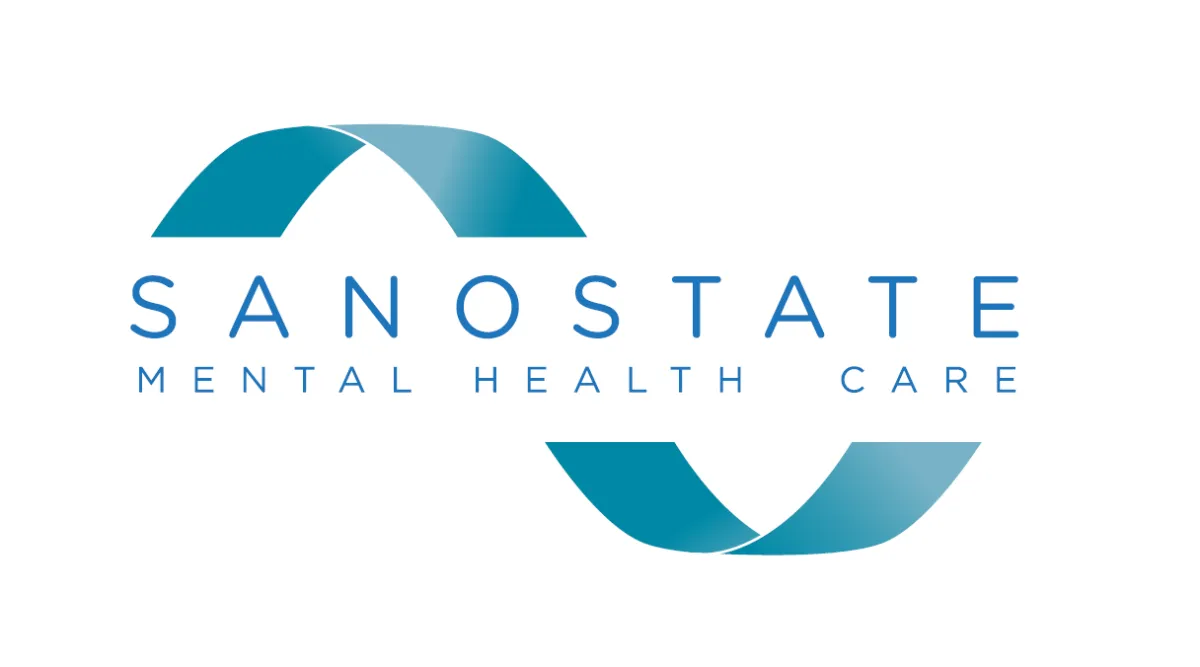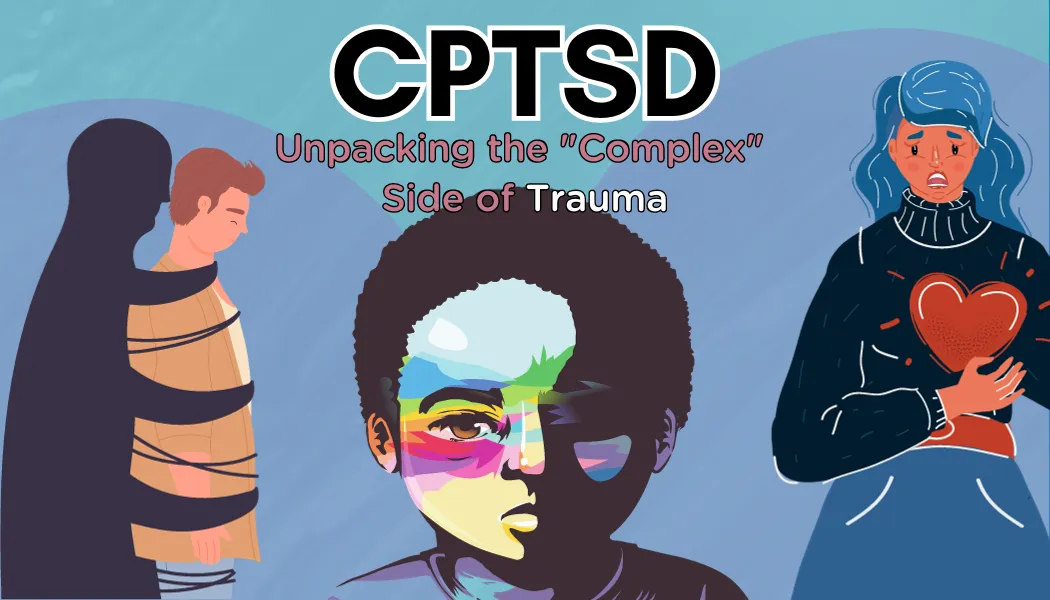General Inquiries: (587) 333-6349 - info@sanostate.com



CPTSD Unpacking the 'Complex' Side of Trauma
“CPTSD doesn't play by the old rules of traditional PTSD. It's like PTSD's wilder, more unpredictable cousin. ” - Blake Ausmus
What is CPTSD?
So, you've probably heard of PTSD, right? It's that post-trauma thing we often associate with war veterans or survivors of life-threatening events. But hey, there's a new kid on the block—CPTSD, or Complex Post-Traumatic Stress Disorder. Let's break it down, understand what it's all about, and why it's making waves in the world of psychology.
First off, let's look at some definitions here: While PTSD is a common diagnosis found in the DSM-5 (the official mental health manual in North America), CPTSD is not found in the DSM-5. Rather, it is a diagnosis explained in the ICD-11, which is the global standard adopted by many other countries. As a professional who has worked extensively with trauma, I think this new diagnosis is a really important one to have.
Now, what is that "C" in CPTSD? It's not about being "chronic" as in long-lasting (though, in some ways, it can be), but it stands for "complex." It's like saying, "Hey, this trauma stuff isn't just black and white; it's a whole rainbow of experiences."
The DSM-5 insists that for a PTSD diagnosis, you need to have faced "actual or threatened death, serious injury, or sexual violence." But what about all those other traumas that don't quite fit that mold? What about the folks who've endured years of relentless bullying, grew up in extreme poverty, or spent decades in a toxic relationship that didn't exactly involve life-or-death showdowns? These experiences can mess you up, too, and they deserve a place in the trauma discussion.
Unpacking the Complexity of CPTSD
CPTSD doesn't play by the old rules of traditional PTSD. It's like PTSD's wilder, more unpredictable cousin. While PTSD often springs from single, horrific events, CPTSD thrives in environments where trauma might be less noticeable to others. Even those exposed to it over a long period of time might not recognize how awful their circumstances truly are. Sometimes, it is only after they start having panic attacks that they look for treatment and as they lay out their history to their counsellor, it becomes clearer what is going on.
One thing that makes CPTSD unique is the presence of complex trauma—a series of intertwined, sometimes long-lasting, traumatic experiences, often originating in childhood or long-term relationships. Imagine it as a continuous rainstorm slowly eroding the shoreline of your emotional well-being.
Spotting the Signs of CPTSD
CPTSD not only occurs through a different pathway than your typical PTSD, but it also can come with other symptoms that individuals may express. Beyond the specific PTSD-related issues of flashbacks and hypervigilance, CPTSD may present differently among people, including:
Emotional Dysregulation: An emotional rollercoaster can be exhausting, as individuals may swing from feeling somewhat fine to feeling anxiety, depression, or low self-esteem.
Dissociative Episodes: These can look like withdrawing from the overwhelm of emotions. Individuals may ask, "Why do I feel a lack of emotions about this?" They might consider themselves "skilled" at being able to separate themselves from big emotions. But do these emotions ever get dealt with properly? In more extreme cases, this can lead to out-of-body experiences, or in even more rare cases, different personalities can arise among an individual.
That Empty Feeling: A chronic sense of hollowness often exists, where one is unable to feel excitement or fulfillment from things they typically enjoy.
Relationship Problems: This can arise from a mixture of showing a lack of trust in others and from low self-esteem.
Mind-Body Interplay: Physical symptoms like chronic pain, headaches, or tummy troubles often occur as well, reminding us that our minds and bodies are intricately connected.
Hope in Recovery
For those dealing with CPTSD, Neurofeedback can be a game-changer in several ways:
First, as we begin with a qEEG assessment, we actually look at how the brain functions. When the brain has learned over and over again that maybe this world isn't such a safe place, it then starts to fire differently. With time, we then can see it becomes wired differently. Specifically, the fear center of the brain can be triggered more easily. So, even in a relatively rested state, we see it still operating with too much fast-wave activity.
We also see the area related to mind-body connection can be affected. Often, what we observe is too much idling in that area, where the brain almost refuses to engage in feeling emotions. Remember, emotions are felt in the body, so the mind-body connection shutting down will lead to less control, or even less experiencing of emotions.
Although that can sometimes be a welcome state, it becomes problematic when it evolves into the brain's trait. We still need to process emotions at some point. And additional problems arise when our brain is ignoring the emotions of others as well. This is likely what leads to those issues with relationships that are so common for those with CPTSD.
Next, once we identify the areas that aren't functioning properly, we simply train the brain to operate better. I mean, if we can train a dog to salivate when it hears a bell ring, can we train a brain to speed up, or slow down, or just better regulate itself overall?
The answer is a resounding yes! It is astounding to see the results that we witness at our clinics. And scientific research is showing the same things that we are seeing regularly. Lives can improve with a concerted effort in training the brain through Neurofeedback Therapy.
So, let's continue to shine a light on CPTSD, raise awareness, and offer hope. Because in the end, it's about helping those who've faced the darkest of storms find their way back to the light. Together, we can navigate this complex terrain and pave the way for brighter days ahead.
If this an area where you could use support, please click HERE to conenct or call 587-333-6349 💙
Disclaimer
Our content is for informational and educational purposes and is not a replacement for professional advice, diagnosis, or treatment. If you're facing mental health concerns, please seek help from a qualified professional for personalized guidance is vital. Every individual's situation is unique, so use the information here at your discretion. While we strive for accuracy, the field of psychology is ever-evolving, and our content may not always reflect the latest research. Please prioritize your privacy by avoiding sharing personal information in comments or interactions. Your well-being is our top concern, so use our content for educational purposes, but remember to rely on professionals for your specific needs.
General Inquiries:
Our Locations:
Additional Resources:
About Us:
We strive for excellence in psychological treatment. We are committed to providing professional, caring, innovative, and research-based services.
© 2024 Sano State Taylored Psychology. All Rights Reserved.

